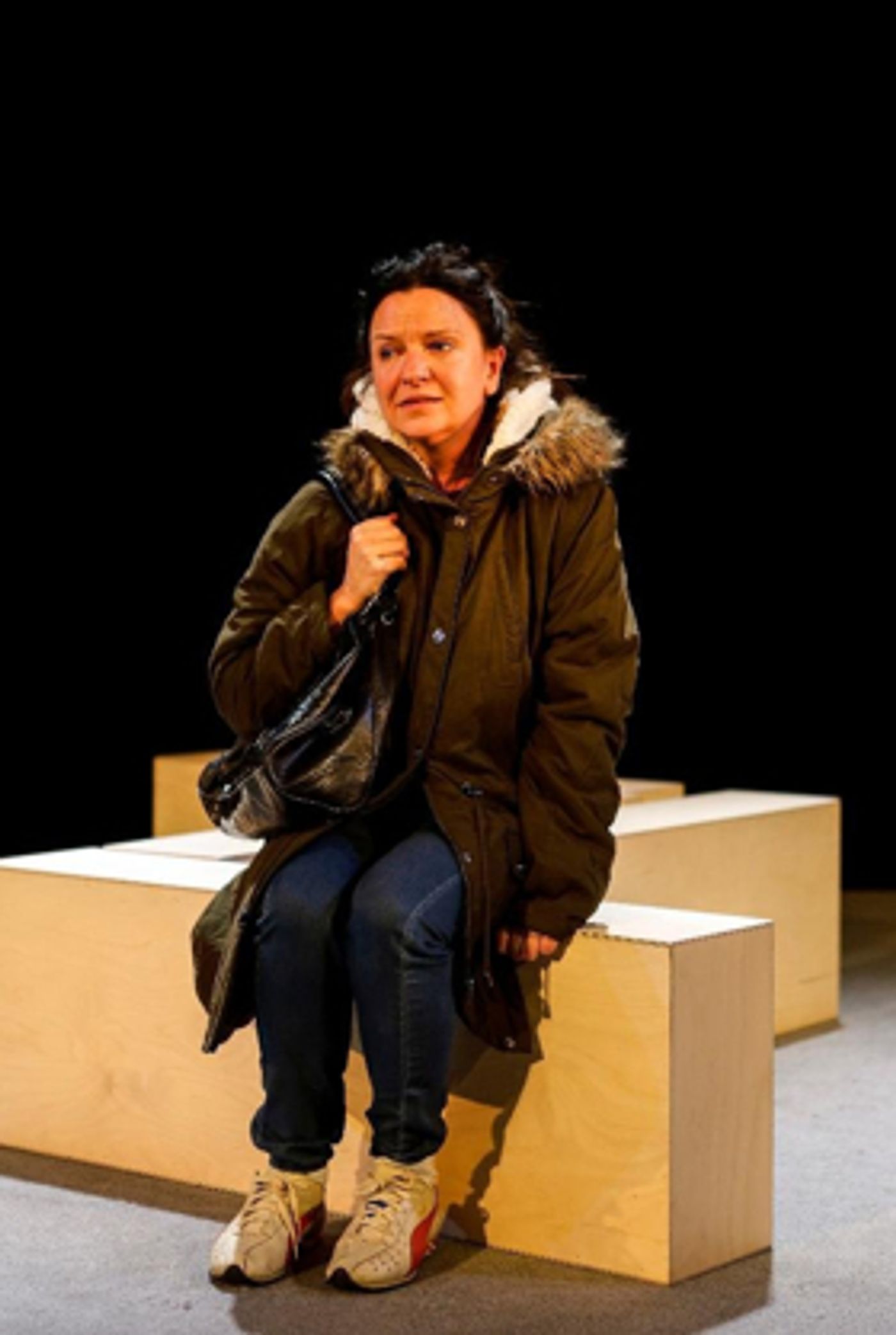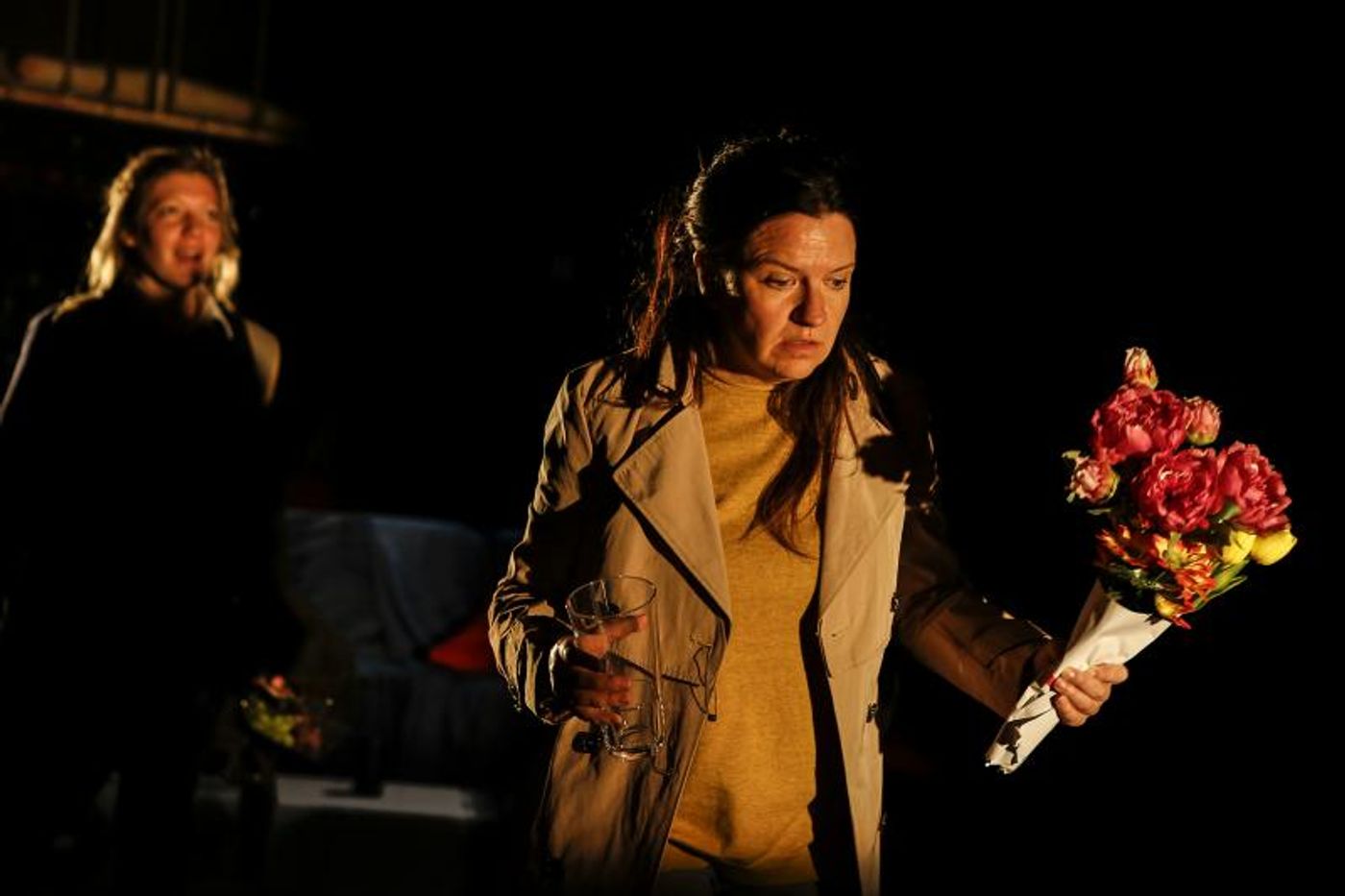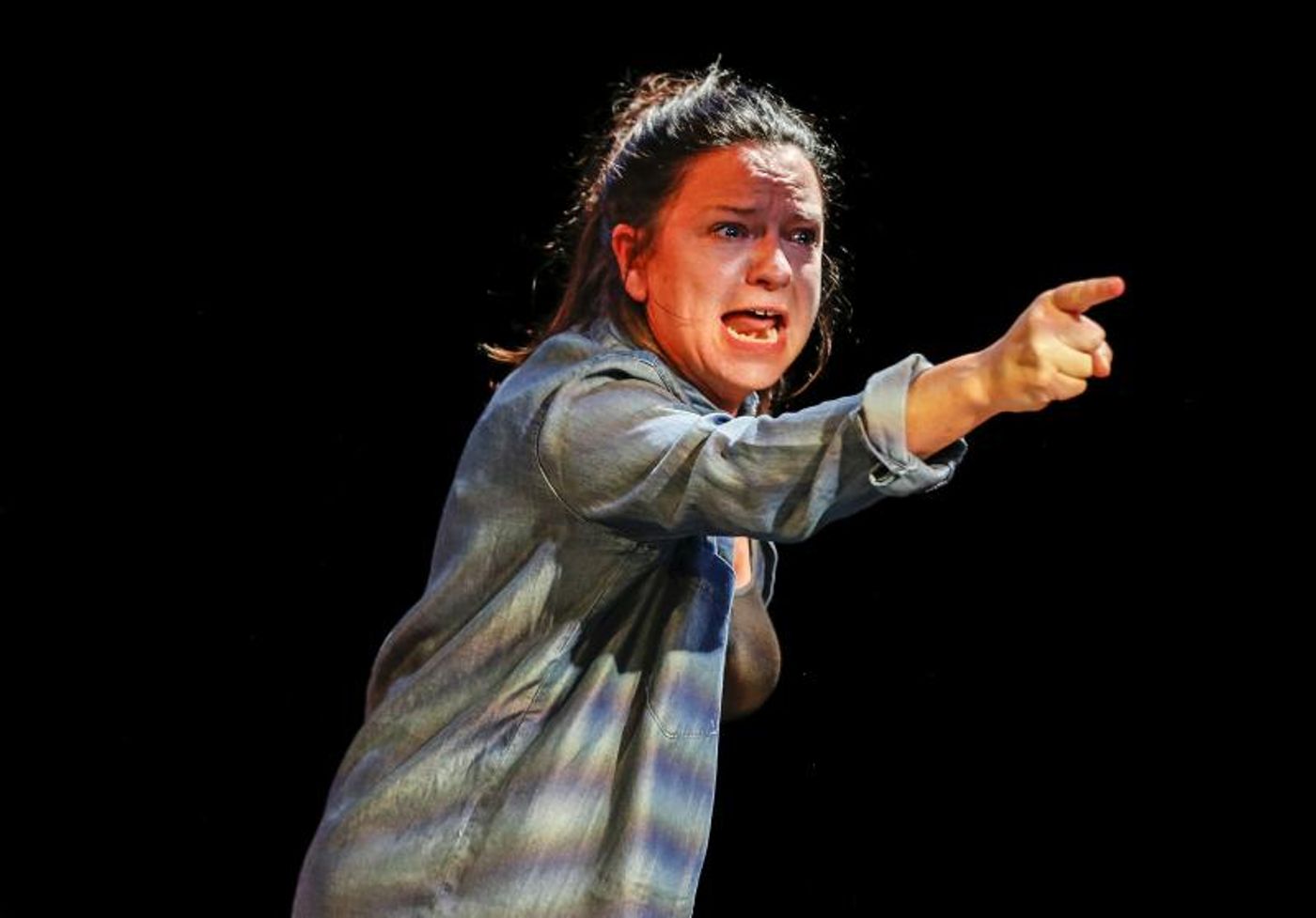Interview: Cathy Owen Talks Cardboard Citizens' CATHY

Cathy Owen has done work across the UK, including Mother Courage and Her Children at the National Theatre of Wales. She returns to the title role of Cathy for its upcoming tour.
How did you become interested in theatre?
Both my parents are actors, so I was always kind of around it. That's how it began, but I remember making a conscious choice when I was 14 about whether I was just doing it because of them or whether I wanted it for myself. It's one of those jobs where it's a vocation; it doesn't let you go.
What made you decide to pursue acting as a career?
It's a love affair really. I write as well as perform; I direct, so I work with young adults as well. I'm fascinated by stories. I think I was very shy when I was young so actually performing gave me space to explore the notion of self. I enjoy it. It's a fun career when you work. (When you don't have work, not so fun.)
Is there a tour stop that you're looking forward to in particular?
I'm really looking forward to going to Wales, because my family all come from there. I'm also looking forward to Glasgow. When we toured before, we did a lot of wonderful theatres all over the country and we did prisons and we did hostels.
That's what I loved about this particular job. We got to meet our audiences as well. It's a really amazing experience to meet a very diverse audience from people who have directly experienced homelessness to developers and landlords. To have that contact with all those different places is what excites me.
I'm very excited about playing in London. This tour is great because it's picking lots of options: to go out of London, to the regions, and to my homeland and we're going to do a few hostels, I think, as well.
How does it feel to return to the show?
The cast have done it for a year and a half nearly, on and off, but we never ever get bored. The show is different every night. That's the sign of a really good writer. I keep discovering new things. I'm looking forward to it this time.
How would you describe Cathy?
Cathy is based on Cathy Come Home, the original 1966 film, but it's an updated version by Ali Taylor. Instead of it being about a couple and buying their first home, it's about a single mum who is renting with her daughter.
I would describe it as a love story between a mother and daughter. It follows an honest, hard-working single mum and her daughter, and it's really about their struggle to find and keep a home together. It does explore the housing crisis as well, but the heart is a very normal, everyday loving relationship.
Can you tell us about your character, Cathy?
My character is early forties. She's brought up her daughter on her own since she was five or six. She had a difficult relationship with her husband, who gambled and was not very responsible. She looks after her father, who's in a care home. Her mother has passed away, so she has quite a lot of responsibility there.
She's a cleaner, she works hard, she works several jobs. She is very supportive of her daughter, who is quite bright in school, and she's trying to build a better life for her.
She's an incredibly honest, humble, hard-working, loving woman. Through really not much fault of her own, just to do with the fate of contracts and the price of rent, she starts to not be able to manage. There follows therefore the descent into the system and getting lost in the system and trying to fight desperately.
Her only flaw is that she's proud, but it's not that much of a flaw. She's just trying to keep her family together and keep her daughter near her home, near her school, near their community.
Did you watch the film Cathy Come Home?

(background) in Cathy
I did, it's phenomenal. I know that in the 1960s, it caused a huge stir in Britain. Because of Ken Loach's style of filmmaking, which is kind of like a documentary, some people actually didn't understand that it was fictional because they cut things with real-life footage.
It caused a very big stir in making people think, "How can this be happening within our country?". It still stands up today. It's a beautiful bit of filmmaking and heartbreaking. The difference between Cathy Come Home then and Cathy today, they used to say we're only three pay cheques away from being homeless. And now we're only one pay cheque away, which is shocking.
In London, one in 200 are homeless. And one in 59 are homeless if you consider the kind of brackets of hidden homelessness: people who aren't registered, people who are sofa-surfing. Similarly, it's one in 69 in Brighton, one in 88 in Birmingham.
We did a performance at Grenfell for the Grenfell community, which was incredibly moving. While they were talking to us, they told us four or five families are still in temporary accommodations, far away from their communities. That's not because there's not enough housing in London. There's not enough accessible housing in London.
For me, as an actor, it's a very rare job - you're doing something that you think is effecting change. It's a drop in the ocean, perhaps, but there's a feeling of empowerment.
Can you tell us more about the post-show discussions?
With Forum Theatre, we do the play and then there's an interval. The audience come back after and we facilitate a talk with them. The lights are up and the actors are on stage and we discuss the play.
They identify points in the play where my character, the protagonist, could have done something differently. We run the scenes again and they shout "stop", and then they can replace my character and try out their idea. It's a kind of rehearsal for life.
We also collect laws; instead of changing the personal problem, we look at changing the systemic problem. We ask the audience what they would do if they could change the law to prevent this happening. There's loads of different laws they come up with.
We got asked to perform at the House of Lords. John Healey, who is the Shadow Minister for Housing, came to see the show in his constituency when we performed there. He loved it so he got us in to do it. It feels like theatre and art opens our hearts. It moves us. There's incredible power within that to therefore effect change, to open people's hearts.
In that discussion, it's about, "This is a devastating situation and what can we do?" Both on a personal level and on a community and political level. It just starts those questions and the dialogue, which has been phenomenal to be a part of as an actor.
This play is beautifully written and the role is fantastic. The writer, Ali Taylor, writes a lot of comedy and, though this is not comedy, it has that sort of buoyant pacing of a comedic writer.
We get to feel like we're doing something and meet our audiences and have the most extraordinary connections with people. This time, we're doing something different instead of collecting laws, in Soho Theatre anyways. I think we're going to have a different kind of dialogue to do with empowerment and change.

What sort of response did you have from audiences?
The theatre-going audience, the upper-middle-class people who just happened to come across the play and who are homeowners, were shocked. There were a lot of tears in the audience often. We often ask the audience immediately afterwards how they feel. They say angry, devastated, shocked, hopeless. There's lots of various reactions depending on people's experiences I think.
When we were in hostels, I had women coming up to me who were just having their lunch in the hostel and happened to see the show and crying and telling me how they lost their children along this journey and sharing their stories. It's an incredible privilege to hear people's experiences.
We went to quite a few prisons. Some of the young men, and women, were very excited to get involved and give their opinions about laws that needed changing. You know, they come out of prison and they don't qualify to be on a housing list for three years. God forbid they get sent out on a weekend because all the hostels are full. Sometimes, they just do another crime in order to get a bed.
You know, there wasn't that much difference between all our audiences, middle class or working class. It's very similar all around the country and in Scotland. There was just extraordinary heart opening, sharing, and dialogue and empowerment and the feeling of wanting to do something about it.
Is there a particular responsibility in presenting material that touches on something very real and relevant?
I've played quite a number of characters like that. You have to do a bloody good job because you're telling people's real life stories. When we're performing to them, and with them, there is a feeling of wanting to do a good job. Cardboard Citizens do work directly with the homeless and there are people who come through them and become actors. They're a great company.
There are people in our cast who have experienced some form of homelessness. They often favor working with people who have experience of homelessness or vulnerability or issues surrounding homelessness. I work a lot with young people who have experienced this. I've had different experiences in my family around issues of vulnerability. It attracts actors who have a social conscience, but who also have experience of the issues to bring authenticity.
Do you believe it's effective for the arts to connect to social issues?
I think the only way to bring change is if you feel something about the subject. Any movement or social change starts with a passion, wherever on the political spectrum you stand. It's usually from your experience, and what theatre and art does best is appeal to our hearts and our imaginations and our capacity for change and growth.
I think the only way to effect change is to encourage dialogue between people. Some people felt ashamed of owning houses when they watched the play or like they couldn't speak. But they did start speaking. Having dialogue in the room with people with different backgrounds, different cultures, different experiences is the only way to break prejudice.
Why should people come see Cathy?
I think it's a brilliant night out at the theatre. It's punchy, it's short, it's real. It will open your heart and your mind. It's current and it's new. It's an exciting piece of theatre.
Photo Credit: Pamela Raith
Videos

